This piece is part of the Taiwan-U.S. Quarterly Analysis series, which features the original writings of experts with the goal of providing a range of perspectives on developments relating to Taiwan.
Australia’s China policy over the last decade has been tough, adventurous, and risky. From the early banning of Huawei from its telecommunications networks in 2018 to foreign interference laws and the AUKUS agreement to acquire nuclear-powered submarines from the United States and the United Kingdom, Australia has been willing to take difficult decisions in the face of Chinese retribution.
In one area, however, caution and continuity have largely prevailed in Canberra: policy over Taiwan.
Such caution was not always obvious. Under the previous conservative government of Prime Minister Scott Morrison, Australian ministers openly talked about war with China over the island.
Defense Minister Peter Dutton, for instance, said in late 2021 that it was “inconceivable” that Australia would not support the United States in any conflict with China over Taiwan. Later that month, Dutton warned of the “terrible price” of inaction on Taiwan, comments which were supported by Morrison.
Dutton’s remarks caused a political storm. Beijing, unsurprisingly, was furious. The then Labor opposition foreign affairs spokesperson, Penny Wong, accused Dutton of “amping up” the threat of war to improve his party’s electoral position.
But the political noise overshadowed the fact that Morrison’s government, for all its bellicose rhetoric on China and Taiwan, never shifted from Australia’s foundational “One China” policy.
Following Labor’s victory in the May 2022 election, Wong became foreign minister, and Dutton the leader of the opposition. Since then, Australia’s Taiwan policy, at least in public, has become more cautious.
As with many other countries, Australia’s “One China” policy has always contained enough wiggle room to distinguish it from Beijing’s own steadfast view of cross-strait relations.
In the 1972 Communique establishing diplomatic relations between the two countries, Australia “recognizes” the government of the People’s Republic of China (PRC) “as the sole legal Government of China.”
The document goes on to say that Canberra “acknowledges the position of the Chinese Government that Taiwan is a province of the People’s Republic of China.”
In the words of Mark Harrison, a senior lecturer at the University of Tasmania, the communique introduced a “deliberate ambiguity that alludes to a broader understanding of the meaning of China than just the People’s Republic of China.”
“This statement created a flexible, secure and enduring basis for relations with both Beijing and Taipei that has aligned with shifts in cross-straits relations,” Harrison wrote in a paper for the Lowy Institute.
Since establishing formal diplomatic ties with Beijing and removing official representation from Taipei, Canberra has broadly followed the model adopted by other developed nations and democracies.
All contacts with Taiwan have been handled through what is now known as The Australian Office in Taipei. Established in 1981, the office is headed by a senior Australian diplomat.
Although dwarfed by the relationship with China, trade ties with Taiwan have blossomed. Direct flights connect the two countries through multiple cities. Australia also has a sizeable Taiwanese community, of both permanent migrants and students.
Whenever asked about Taiwan, Australian political leaders have for many years robotically repeated their adherence to the “One China” policy. Any slips of the tongue from senior figures were quickly cleaned up.
Over time, some Australian politicians, business leaders, and university chiefs, either because they were oblivious to the 1972 Communique’s ambiguities or because they wanted to curry favor with Beijing, internalized China’s own position.
In other words, they echoed China’s assertion that Australia had recognized, as opposed to acknowledged, that Taiwan was a province of the PRC.
This in turn has encouraged a number of senior politicians who oppose Australia aligning its China policy with that of the United States.
Former Labor Prime Minister Paul Keating, for example, has said that Taiwan is “not a vital Australian interest” and derided the island’s 1996 pioneering presidential poll as “municipal elections.”
“And for those municipal elections, we have World War III? Is that the proposition?” he asked.
The new caution on Taiwan probably dates to about 2012, when Xi Jinping came to power and Australia’s own bilateral relationship with China was intensifying. An Australian minister has not traveled to Taiwan since that year.
After Australia signed a bilateral trade agreement with China in 2015, it began to negotiate one with Taiwan, as New Zealand had already done. Under pressure from China, which at the time was working to isolate the anti-unification government in Taiwan that was elected in 2016, Australia withdrew from the talks.
“The Chinese government made it clear to me that circumstances had changed between Taiwan and mainland China and that China would not look favourably on Australia seeking to pursue a free trade agreement with Taiwan, as New Zealand had done some years ago,” then-Foreign Minister Julie Bishop said.
The Taiwan trade talks were dropped at a moment when bilateral relations with Beijing were starting their downward slide over multiple issues, including Hong Kong, Huawei, foreign interference, and so forth.
When Australia called for an independent inquiry into the origins of COVID-19, relations hit rock bottom. Soon after, in May 2020, Beijing enacted a series of punitive trade measures against Australia.
During the lengthy coronavirus crisis, Australia supported other like-minded democratic nations in pressing for Taiwan to be given a seat at the table at the World Health Assembly. Otherwise, Taiwan policy changed little.
Commentator Rowan Callick recently encapsulated the bureaucratic inertia behind the continuity in Australia’s Taiwan policy. In short, there is never a good time to rock the boat.
“If Australian relations with the PRC are fraught, Canberra says it’s not the appropriate time to do more with Taiwan, in case that makes Beijing even more mad,” he wrote. “If Australia-PRC relations are good, it’s considered safest not to imperil that sweet spot by building better ties with Taiwan.”
The new Labor government, under Prime Minister Anthony Albanese, which took power in May 2022, came into office with the stated objective of lowering the temperature on China.
The approach paid off, with China and Australia resuming ministerial-level talks in 2022 for the first time in nearly four years. Albanese and Xi met on the sidelines of the G-20 summit in Bali later that year.
Ostensibly, Australia did not change or weaken its China policy to secure this outcome. Indeed, in some areas, notably the Pacific, Wong has energetically stepped-up engagement with island nations, often as part of a head-on competition with China.
However, in an effort to restart dialogue and persuade Beijing to drop its trade measures against Australia, the Albanese government has not pushed the boundaries on the Taiwan relationship.
In the words of Kevin Magee, a career diplomat who previously headed the Australian trade office in Taipei, Canberra has been “providing guarantees [to Beijing] on limits of Australian interaction with Taiwan.”
There has been no official confirmation of Magee’s assertion. However, Albanese gave such views succor when he said on the sidelines of the Bangkok 2022 Asia-Pacific Economic Cooperation summit that Taiwan could not join the Comprehensive and Progressive Agreement on the Trans-Pacific Partnership (CPTPP) regional trade pact because it was only open to “recognized” nations.
Yet, Albanese was incorrect. The CPTPP contains no such barriers to entry.
On core national security issues, however, Australia has been steadfast. In time, that is bound to affect Taiwan (and China) policy.
The tripartite AUKUS agreement between the United States, the United Kingdom, and Australia, which was sealed in a San Diego leaders’ meeting in March 2023, will allow Australia to obtain nuclear-powered submarines. AUKUS will also advance growing cooperation between the Australian, U.S., and Japanese militaries, which have already begun to talk more about Taiwan.
From 2027, a number of U.S. submarines will be rotated through Perth, in Western Australia. Inevitably, tighter military ties with the United States in the Indo-Pacific will involve discussion about Taiwan contingencies.
“Since Australia is considered one of Washington’s most important and reliable partners, it is likely to find itself caught in a double bind if the US defends Taiwan as Joe Biden has publicly stated,” wrote Elena Yi-Ching Ho, a cybersecurity analyst, before the AUKUS announcement. “Even if Australia chose not to get involved in militarily supporting Taiwan, it would still face potential economic sanctions from China.”
The core of AUKUS is greater strategic intimacy and alignment with the United States. As U.S. policy, both in the White House and in Congress, hardens toward Beijing, Canberra will inevitably come under pressure to follow.
After all, AUKUS is dependent on Congressional approval of highly sensitive U.S. technologies, and not just those related to nuclear-powered submarines. Would they approve such transfers if they thought Australia was backsliding on Taiwan?
Canberra, to take one example, has long refused Taipei’s requests to exchange military attaches. Soon, that may no longer be tenable.
Given China’s absolute commitment to taking control of the island, and the United States’ increasing outreach to allies for support in East Asia, Australia won’t have the luxury of keeping its head down on Taiwan indefinitely.
The Brookings Institution is committed to quality, independence, and impact.
We are supported by a diverse array of funders. In line with our values and policies, each Brookings publication represents the sole views of its author(s).

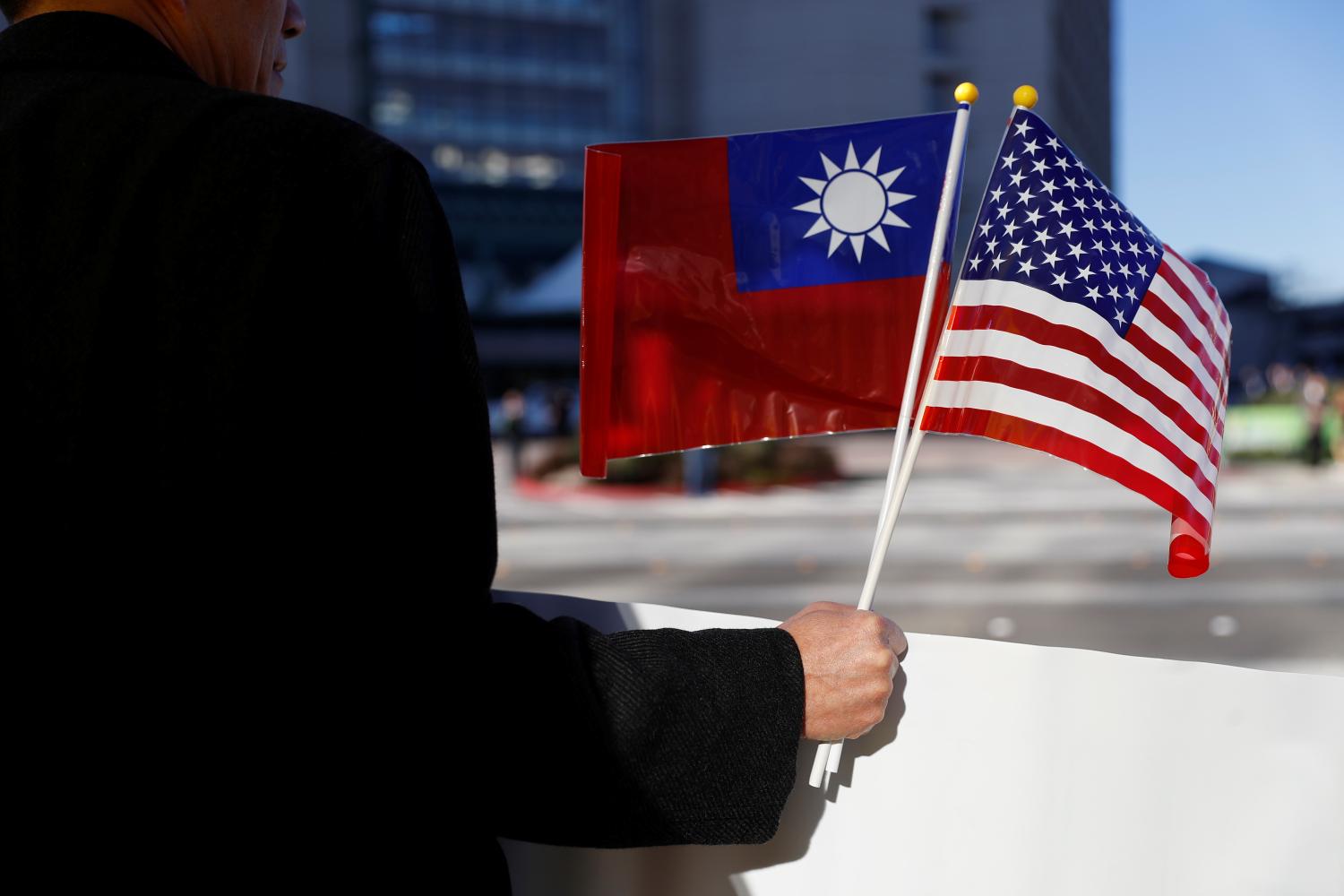
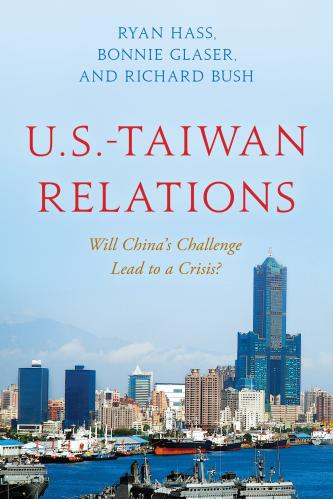
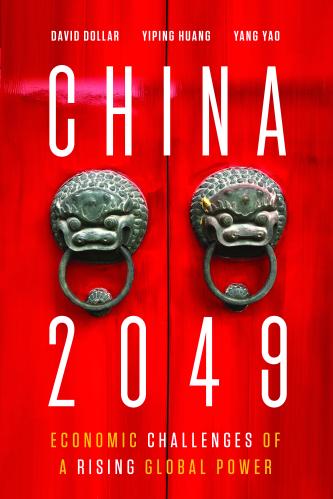
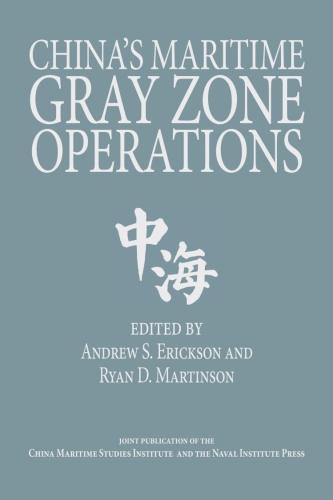

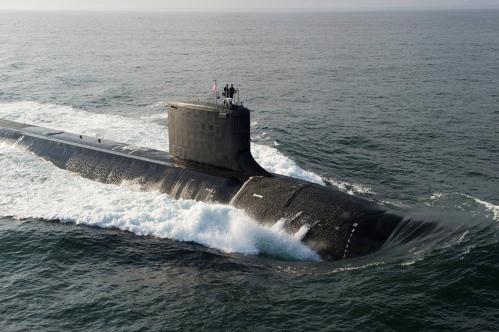



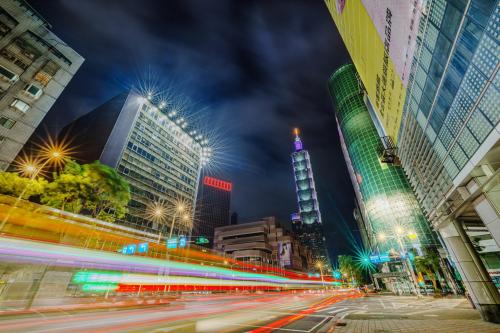
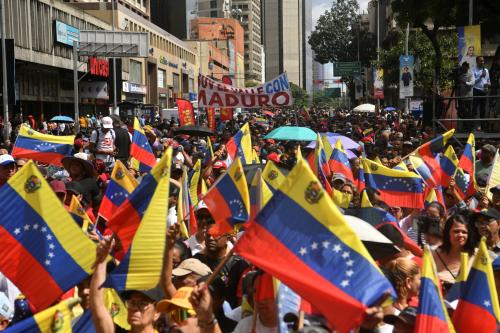
Commentary
Australia’s caution on Taiwan may not last
March 29, 2023